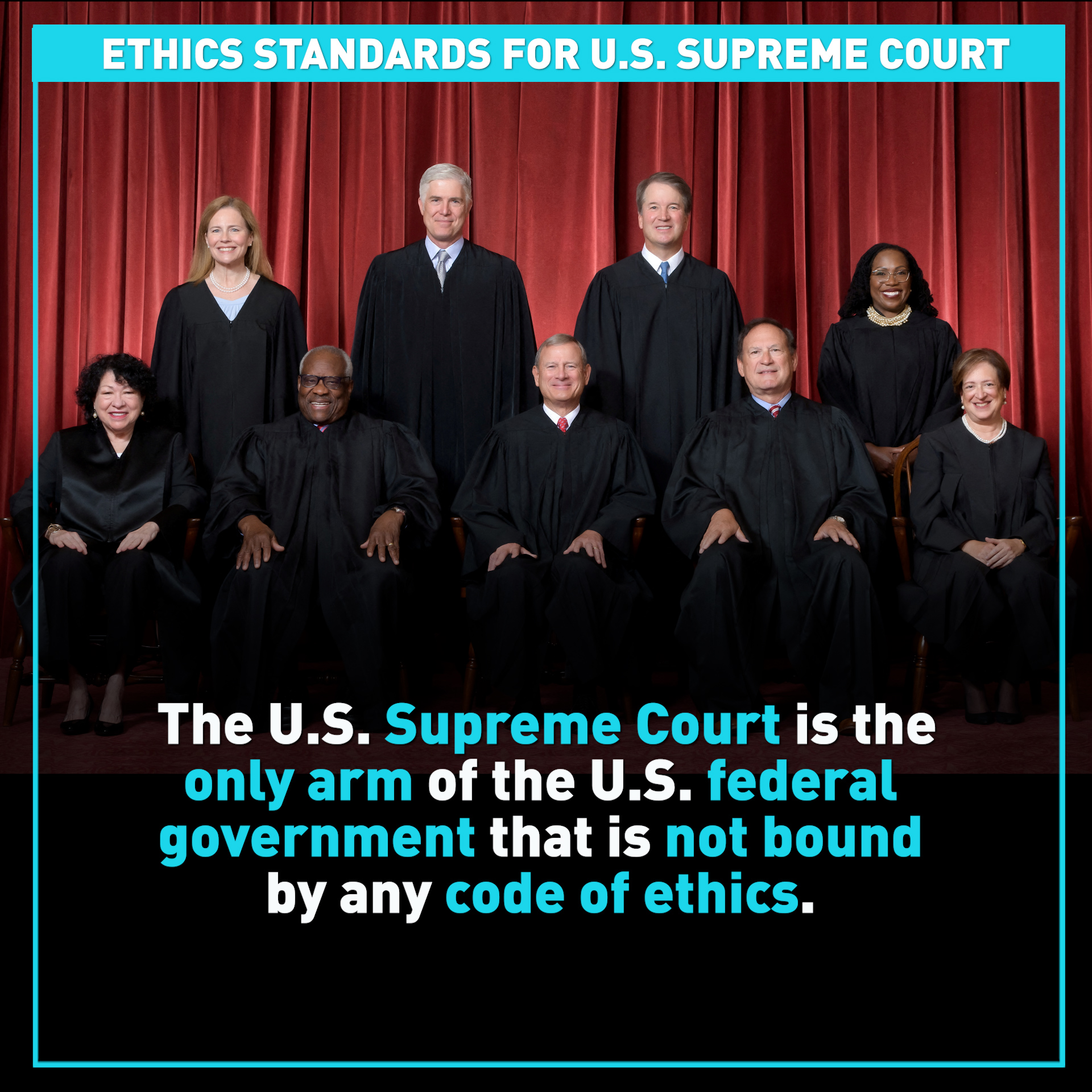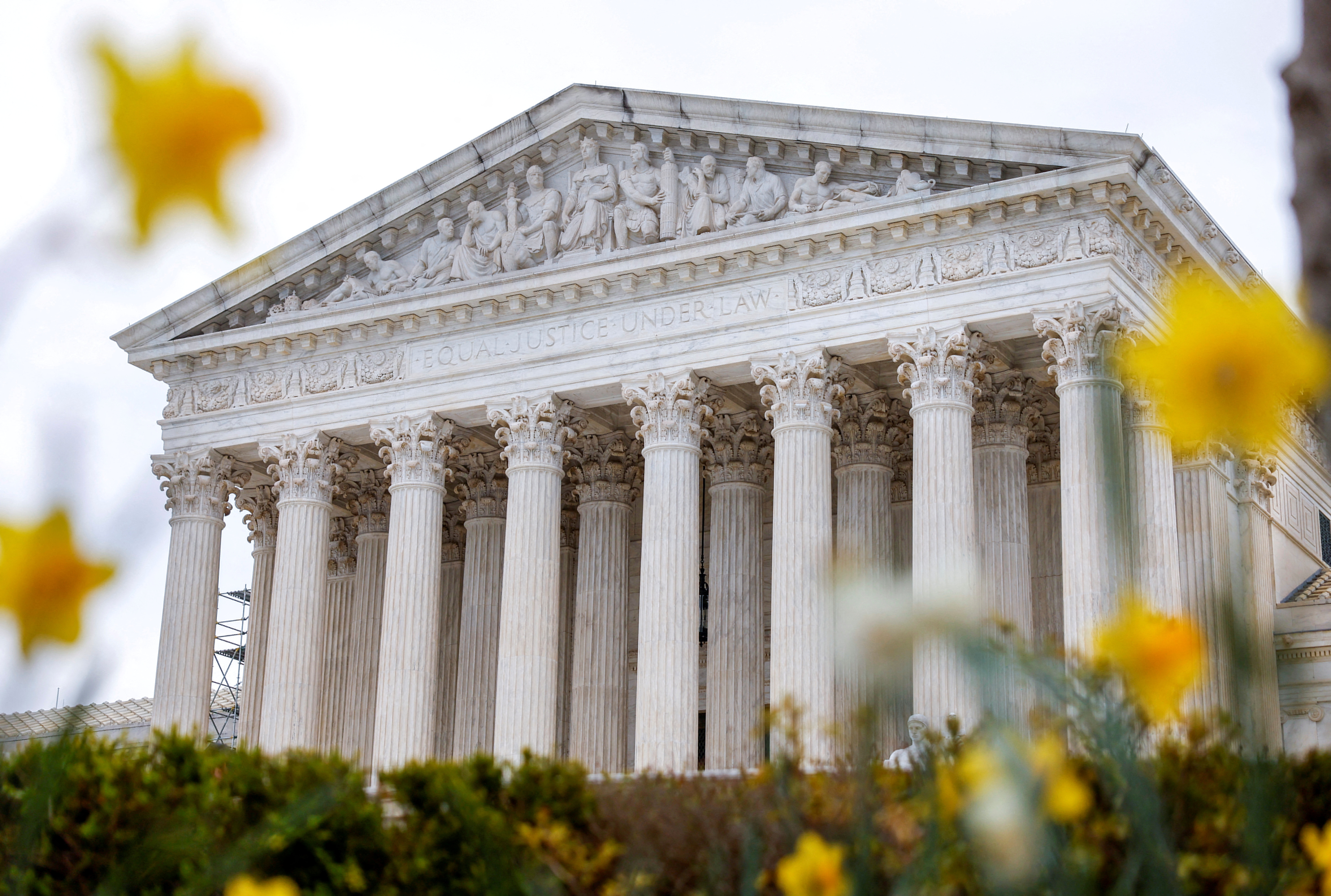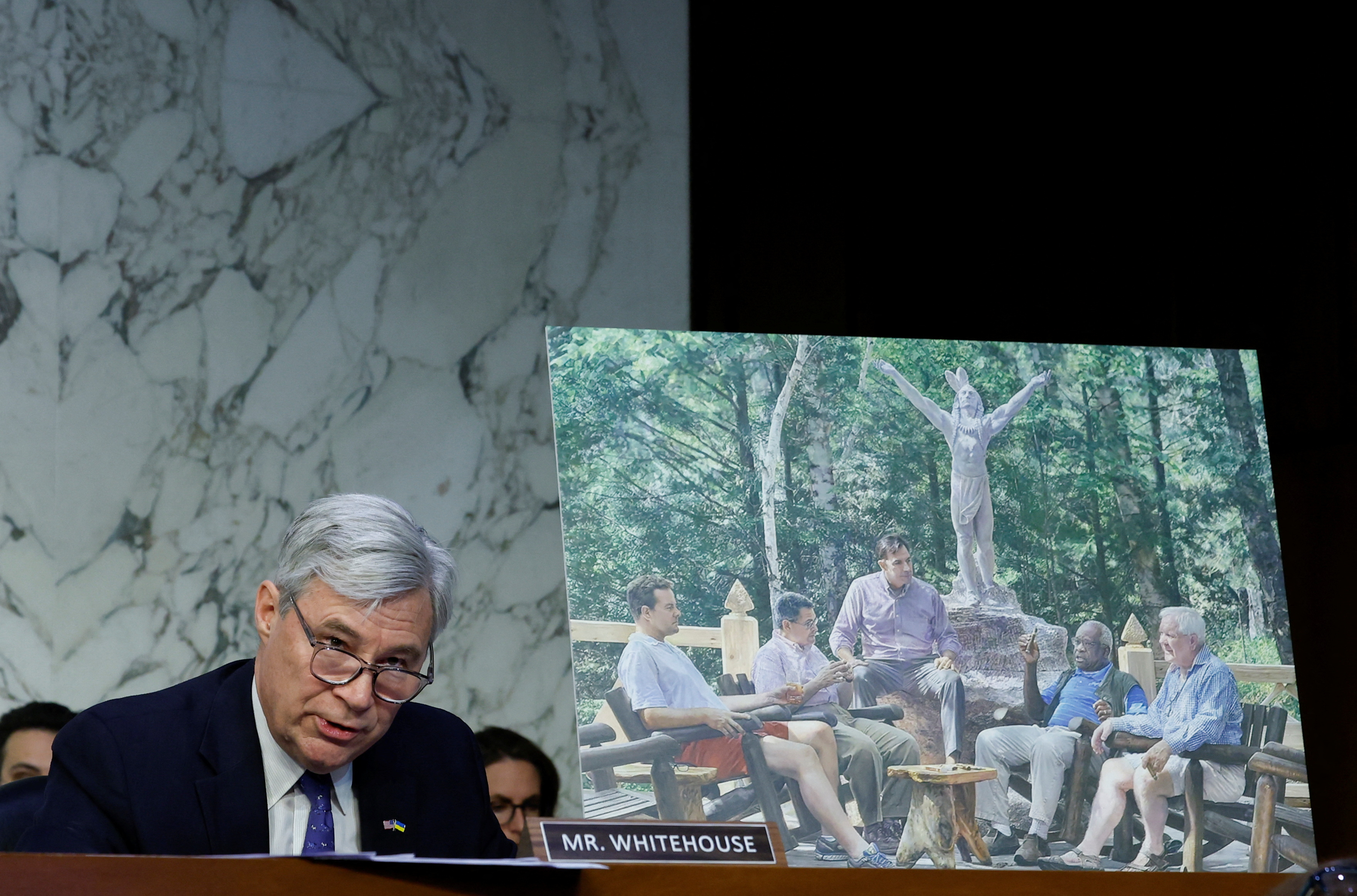U.S. Senators must disclose any gift they receive that is worth more than $50, and must get the approval from an ethics committee before accepting any gift valued over $250, even if it comes from close friends. Similar ethics standards apply to the House, the Executive branch and the lower courts. So how is the U.S. Supreme Court operating in what critics call an “ethics-free zone”?

Click arrows to view gallery
Click arrows to view gallery
The U.S. Supreme Court is the only arm of the U.S. federal government that is not bound by any code of ethics. The U.S. Supreme Court does not have a procedure for investigating ethics complaints, or a place where such complaints could be filed. Critics say the U.S. Supreme Court’s image can be badly and permanently damaged if it is not held to basic standards of transparency and accountability.
New rules for better public accounting of freebies given to Supreme Court justices from corporations and organizations is now required as of March 14, after a push for more transparency by Democratic lawmakers. Yet the value of the gifts can be omitted, and the disclosure can be submitted up to a year after the gift.
ProPublica recently reported on decades worth of extravagant trips given to Justice Clarence Thomas by a billionaire conservative friend, that were never disclosed by the justice.Whether disclosed or not, receiving gifts and entering into financial deals with wealthy individuals gives the appearance that wealth can buy influence in the nation’s top court.
Late Justice Ruth Bader Ginsburg took a tour of Israel that was paid for by an Israeli billionaire with business before the court. Late Justice Antonin Scalia died on an undisclosed visit to a private Texas hunting resort owned by a wealthy businessman with legal matters before the court. Ethics complaints against Justice Brett Kavanaugh had to be dropped mid-investigation in federal court once he became a justice, and there is no procedure to re-file those concerns in the Supreme Court.
The U.S. Supreme Court is largely left to itself to address and acknowledge ethics issues.
After a draft decision to overturn Roe v. Wade was leaked and published in May of 2022, the Marshal of the Supreme Court, Gail Curley, was assigned to conduct an investigation into the leak. Yet during the investigation, the justices did not have to make statements, sign affidavits, or turn over their communications, as was required of staffers. Curley said she was unable to find the leaker.
Supreme Court Justice Samuel Alito said the Dobbs breach “created an atmosphere of suspicion and distrust” inside the nation’s top court.

Recusal, or judicial disqualification, is one way Supreme Court justices can avoid ethics snarls. Yet recusals are not required, as seen when Justice Thomas refused to recuse himself from a case involving January 6 White House records that came on the heels of the revelation of his wife Ginni’s text conduct with White House officials surrounding the effort to overturn the 2020 election.

U.S. Senator Sheldon Whitehouse (D-RI) speaks during a Senate Judiciary Committee hearing on "Supreme Court Ethics Reform" on Capitol Hill in Washington, D.C.
U.S. Senator Sheldon Whitehouse (D-RI) speaks during a Senate Judiciary Committee hearing on "Supreme Court Ethics Reform" on Capitol Hill in Washington, D.C.
Senator Sheldon Whitehouse (D-RI), the Chairman of the Senate Judiciary Courts Subcommittee, and a group of Democratic Senators recently reintroduced the Supreme Court Ethics, Recusal, and Transparency (SCERT) Act to bring basic transparency and accountability standards to the Supreme Court.
Chief Justice John Roberts has reiterated several times that lower court disclosure obligations outlined in the Judicial Conference regulations do not apply to the Supreme Court. The Supreme Court Justices are paid by American taxpayers.
For more, check out our exclusive content on CGTN Now and subscribe to our weekly newsletter, The China Report.